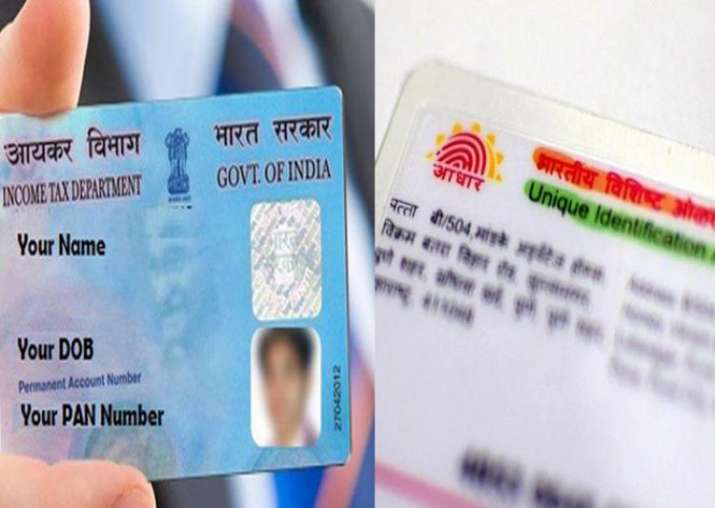Introduction
The prepaid payment wallets are also known as PPIs and they happen to be the instruments having fiscal worth against which the goods and services can be bought and funds can also be transferred. The monetary worth injected into the prepaid payment wallets turns out to be the sum that the holder has paid towards it either via cash or debit to a bank account or credit card. The prepaid payment wallets have become very well-known for the last few years as they can be used with ease in other manners for transactions. The transactions performed by them are clear, responsible, and easy to use. The prepaid payment wallets can also be called e-wallets. For the assessing and the permitting the transactions between the various prepaid payment instruments, the Reserve Bank of India has given certain recommendations.
The prepaid mechanisms can be issued in these forms:
Smart Cards
Internet Accounts
Internet Wallets
Wallet Accounts
Magnetic Strip Cards
Paper Vouchers
And any other thing that can be utilized to obtain the prepaid amount
TYPES OF PREPAID PAYMENT INSTRUMENTS
Closed Wallet or Closed Prepaid Payment Instrument –
These are the types of PPIs that are issued to its consumers by a company specifically for the purpose of purchasing goods solely of that company. This kind of PPI can be utilized for buying goods and services of that particular company which has issued it. For example – Reliance Supermarkets, etc.
Semi Closed wallet or Semi Closed Prepaid Payment Instrument –
With regard to this type of the prepaid payment instruments in which the holder
Semi Open Wallet or Semi Open Prepaid Payment Instrument –
These instruments are to be used by the holders for purchasing goods and services at merchant spots accepting cards. Cash withdrawal and redemption are not possible with such kinds of instruments.
Open Wallets –
These happen to be the prepaid payment mechanisms used to obtain goods and services at anywhere and the holders have the rights to withdraw cash from ATMs.
Cross Border Transactions –
As per the guidelines of the RBI the prepaid payment wallets do not apply to individuals who have the approval to issue the Foreign Exchange denominated prepaid payment instruments, in sync with the provisions of Foreign Exchange and Management Act. The transaction limit for cross border transactions is kept at INR 5,000.
ADVANTAGES OF E-PAYMENT WALLET
1. It is a secure mode of payment.
2. It can save time as all the bills regarding telephone, electricity, mobile etc. can be paid online.
3. It gives access for online deals from anywhere and any time.
4. These are fiscal transactions that are transparent and responsible to the issuer of e-wallet.
SUITABILITY ASPECTS FOR ISSUING PREPAID PAYMENT INSTRUMENTS
The Banks and the NBFCs can issue prepaid payment instruments only once after getting approval from the Reserve Bank of India
The entities apart from banks or NBFCs should have at least confirmed total worth of Rs. Fifteen crores, according to its last audited balance sheet.
For seeking approval, these entities need to make an application to the Reserve Bank of India.
A newly incorporated company has to submit a certificate regarding the present net worth along with its temporary balance sheet from its Chartered Accountant.
if any entity other than Banks and NBFCs is having the license for providing prepaid payment instrument prior to the Reserve Bank of India making it essential to have total worth of INR fifteen crores, such entity will have no option but to hike its net-worth legitimately to this limit before the end of September, 2020.
It is essential for the entity to be registered under the Company Act, 2013 or the Companies Act, 1956 to obtain the license from the RBI.
It is pertinent that the activity to function as a prepaid payment instrument the issuer is specified in the Object Clause of the Memorandum of Association of the company.
FACTORS SURROUNDING CAPITAL FOR ISSUE OF PREPAID PAYMENT INSTRUMENTS
While calculating the net worth of a company, the following things have to be a part of the net worth:
The Paid-up equity share capital
The Free Reserves
The Preference shares
The Share Premium Account
The Capital Reserves representing surplus
DOCUMENTS REQUIRED FOR GETTING THE PREPAID WALLET LICENSE
The Name of the entity
The Address Proof of entity’s registered office
The Constitution of the entity
The Entity’s certificate of incorporation
The chief business of the entity
The Information of the management
The Particular of Statutory Auditor of the entity
The latest authorized balance sheet of the company
The Names and Addresses of the Bankers of the Company
Any other crucial documents that may be required from time to time.
THE APPROVAL METHOD FOR APPLICATIONS GIVEN BY NON-BANKING ENTITIES
Step 1: A non-banking entity wanting the approval of RBI has to make an application in Form A according to the Regulation 3(2) of the Payment and Settlement System Regulations, 2008.
Step 2: The RBI will consider the suitability of the entity during the screening process.
Step 3: Post the eligibility, it is evaluated whether the company is sound financially and the assessment of the management of the company is performed for which opinion from regulators, government authorities, etc. is taken.
Step 4: Following this the applicant is examined on other factors that includes the potency of its customer service, overall capability, technical proficiency and other related requirements.
Step 5: If the company fails the suitability criteria, then the application will be rejected. The fee given by the company during the making of application shall not be refunded.
Step 6: If every essential condition is met by the company, it will be given the in-principle nod by the Reserve Bank of India, which shall be important for six months.
During the six months of the in-principle approval, the entity has to submit a proper System Audit Report. If the company is unable to furnish this report, its in-principle nod will automatically fade away.
Step 7: Post the approval, the company gets a Certificate of Authorization, which would remain in force for five years from the day it has been given a nod.
If the certificate of authorization has to be renewed, an application needs to be put in to the RBI three months before the expiry of the certificate. If there happens to be a problem in giving the application promptly, then the RBI reserves the rights to accept or reject the application of renewal.
Step 8: If an entity obtains the final approval, then it has to initiate its business operations within six months of obtaining the nod. If it cannot, then the approval will peter out.
However, a one time extra duration of six months is availed from the RBI by giving a written request beforehand mentioning a convincing reason obstructing the launch of business operations. The RBI has the right to accept or reject such requests for providing additional time.
Step 9: Those issuing prepaid payment instruments must document all the dealings undertaken via Prepaid Payment Instruments for a minimum of ten years. According to the suggestion of the RBI, this data has to be given either to the RBI or any other agencies, as required. The issuers of prepaid payment instruments also need to file Suspicious Transaction Reports (STRs) to FIU-IND (Financial Intelligence Unit-India).
EXTRA CONSENT REQUIRED BY THE NON-BANKING COMPANIES
If a non-banking company is given the Certificate of Authorization for providing prepaid payment instruments, then a written approval is needed of the RBI in following conditions:
If there has been any takeover or acquirement of authority of the company and the same has effected any change in management or not;
If due to an alteration in the management there has been a change in thirty percent directors of the company, excluding the independent directors. But beforehand written consent of the RBI will not be required for those directors re-elected on retirement via alternation.
LEGALITY OF THE PREPAID WALLET LICENSE
The prepaid payment instruments license is valid for at least one year from the day it is issued to the concerned holder. The PPI issuer is duty-bound to inform the holders regarding the expiry of the PPIs through either SMS or e-mail or post or any other means inside a reasonable time duration. The intimation pertaining to the expiry of the PPI has to be made in the holder’s chosen language as specified by him or her at the time of obtaining the PPI. In case the PPI lapses and the holder does not provide a renewal application for a new PPI, he or she can get a grace period of sixty days.





![LIMITED LIABILITY PARTNERSHIP COMPANY [LLP]](https://www.biatconsultant.com/blog/wp-content/uploads/2020/04/Guide-To-LLP-Registration-In-India.png)




